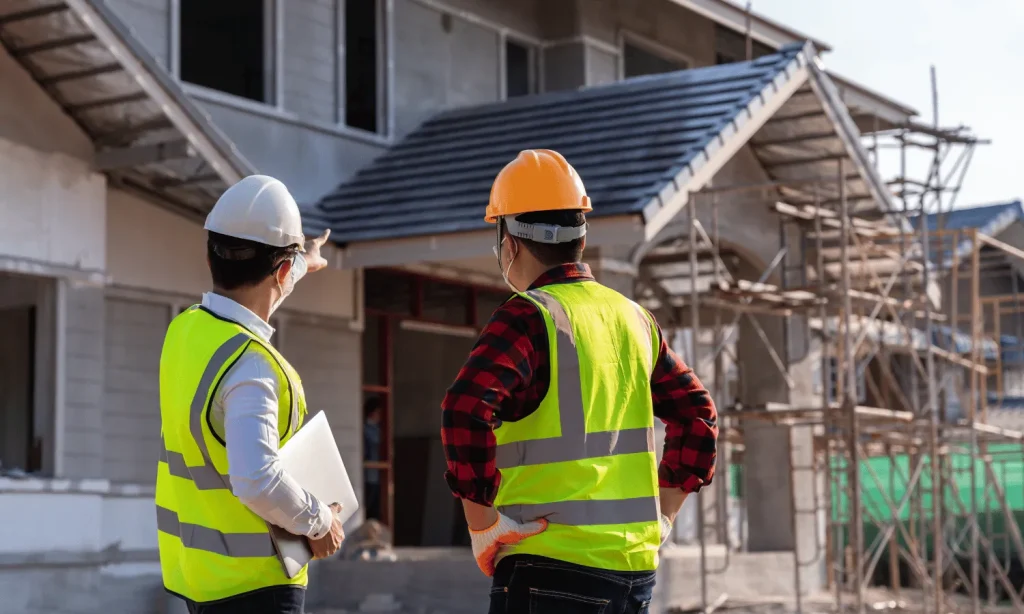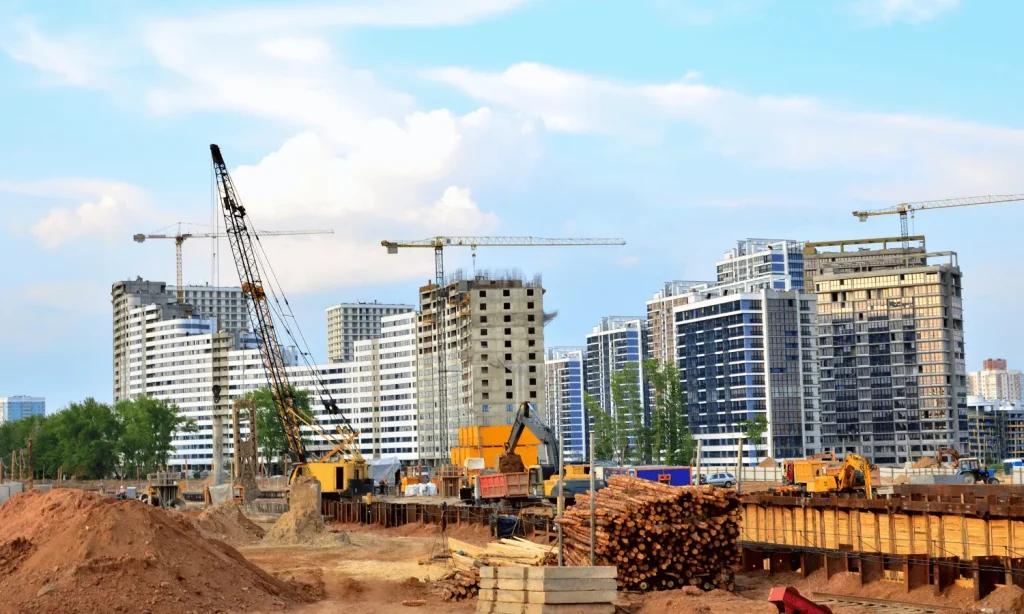In any construction project, the success of the work depends not only on materials, labor, and equipment but also on the systems and resources that support them. These are supporting factors, which are referred to as general requirements. They are the indirect costs of a project, the things and activities that are needed but not part of the final structure, but are needed in the successful completion of the final structure. General requirements include site preparation, temporary utilities, safety compliance, and project management to ensure that the construction work is likely to occur smoothly, efficiently, and safely.
Many contractors turn to construction cost estimating services to properly budget for general requirements, preventing unexpected expenses and project challenges down the line. Knowledge of general requirements is important to the contractors, the project managers, and the clients, as they constitute an important component of the entire project budget. These costs have a direct effect on schedules, quality, and safety, although they are often overlooked.
Site Preparation and Temporary Facilities
Any construction project starts with the appropriate site setup. General requirements normally cover the cost of the worksite preparation that entails clearing of debris, land grading, and making the access available to the workers and equipment. There is a need to have temporary facilities like:

- Project management staff trailers or field offices.
- Portable toilets or washrooms.
- Material and tool storage facilities.
- Site security fencing and barriers.
These facilities form the basis of the safe and orderly environment of the project.
Utilities and Temporary Services
Projects should have temporary utilities prior to the installation of permanent systems to facilitate construction works. General requirements cost includes:
- Power supply and generators are temporary.
- Water services to the workers and construction.
- Lighting during the night or in areas of work that are closed.
- Site coordination of Internet or communication systems.
In the absence of these provisions, construction teams are unable to perform.
Supervision and Project Management
Supervision is one of the greatest elements of general requirements. Projects in construction need to be monitored at all times to be on track and of quality. Costs here may include:
- Wages of the Superintendent, foremen, and project managers.
- Record-keeping, scheduling, and reporting for administrative personnel.
- Resources and time to coordinate meetings.
- Progress tracking and daily logs.
This is to ensure that the project is run efficiently, the deadlines are met, and the stakeholders are kept informed on the process.
Safety and Security Measures
Any construction project is based on safety. General requirements encompass numerous costs for the safety of workers and security of the location:
- Personal protective gear (PPE) such as vests, helmets, and gloves.
- Road signs and danger signs.
- First aid stations and emergency measures.
- Fire security systems, like extinguishers.
- Fencing of the site, security guards, or security cameras to prevent theft or vandalism.
These provisions minimize accidents, safeguard property, and ensure conformity to occupational health and safety policies.
Equipment and Tools
Although materials are normally listed under direct costs, a large number of general tools and equipment are under general requirements. Examples include:
- Minor tools such as drills, saws, and ladders.
- Working tools, e.g., scaffolding, lifts, or hoists.
- Repair of construction equipment.
- Lubricants, fuel, and other consumables that are needed during operations.
These materials may not be left in the completed project, but are essential in building the project.
Permits, Fees, and Inspections
The construction projects are also required to abide by the local building codes and regulations. General requirements include the costs of:
- Zoning and building permits.
- Utility connection fees.
- Costs of environmental compliance.
- Local inspections are mandatory.
Through the cost consideration, contractors will be in a position to avoid legal delays and ensure that the projects are of the required standards.
Quality Control and Testing
There are also general requirements, which involve quality assurance costs. This ensures adherence to specifications in materials and workmanship. Examples are:
- Concrete, steel, or soil materials testing.
- Third-party inspections.
- Prototypes and mock-ups to be accepted.
- Record keeping on quality control.
These measures will eliminate the expensive corrective actions and ensure that the structure is durable in the long run.
Temporary Structures and Protection
General requirements to protect continued work may include temporary structures and protective measures, including:
- Weather gear such as tarps, tents, or heaters.
- Dust controls and noise control system.
- Safety Shoring, bracing, or scaffolding.
- Scaffolds or temporary ramps to allow workers to access the area.
These factors guarantee continuous work development regardless of the environmental factors.
Cleanup and Waste Management
Construction sites must be clean and orderly. General requirements normally budget:

- Periodic cleaning and cleanup of the sites and debris removal.
- Dumpsters, hauling charges, and landfill charges.
- Re-use of construction materials.
- Cleaning up the process before handing over the project.
Proper management of waste enhances safety and efficiency and also satisfies environmental requirements.
Insurance and Bonds
Another very important section of general requirements is risk management. The normal construction projects usually involve:
- General liability insurance.
- Employee’s compensation insurance.
- Builder’s risk insurance.
- Payment and performance bonds.
This cushions both the contractors and the clients against uncertainties such as accidents and damage, or loss of finances.
Why General Requirements Matter?
Construction projects are commonly known as general requirements. The simplest of jobs may get slowed down, safety may be compromised, or the budget may become excessive without them. They make the site safe, organized, and within legal limits; besides, they offer the infrastructure on which direct work proceeds.
To the owners of projects, it is important to know the general requirements since such expenses can constitute 10-20% of the project budget. Openness in the field prevents conflict between clients and contractors and provides bids that are realistic for the project.
Conclusion
General requirements in the field of construction do not necessarily lead to visible structures directly, yet they are necessary to any project. These factors give the structure of an effective project delivery in aspects like site establishment and oversight, permits, and insurance. They make sure that employees can carry out their duties in a safe and healthy environment, that resources are allocated effectively, and that the project is in line with all the requisite regulations.
Understanding the significance of general requirements and incorporating them correctly in the cost estimates, the contractors and owners can prevent unpleasant surprises, budget the project well, and ensure that the accomplishment of the project is accomplished smoothly. Finally, general requirements are not overhead commands after all; they are investments in the safety, quality, and success of construction projects.
FAQs
What Are the General Requirements in Construction?
The indirect costs of a construction project that help it to be carried out are referred to as general requirements, though they do not form part of the completed structure. These cover supervision, temporary facilities, safety, permits, as well as insurance.
How Are General Requirements Different from General Conditions?
The terms are frequently used with a slight difference that general requirements tend to be related to project-specific aid items (such as safety equipment, site cleanup, and temporary utilities), whereas the general conditions can be of broader contract-linked terms, responsibilities, and administrative processes.
What Percentage of A Project Budget Is for General Requirements?
General requirements usually take between 10-20% of the total project budget, depending on the size, complexity, and duration of the project.




